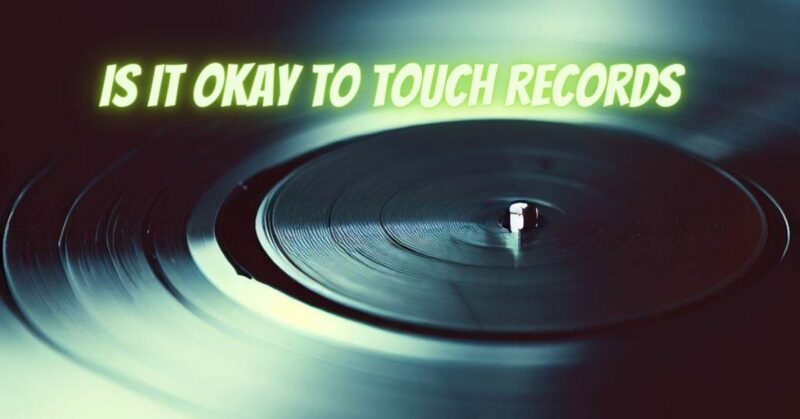Vinyl records hold a special place in the hearts of music enthusiasts, and questions often arise about whether it is okay to touch them. The concern stems from potential damage to the delicate surface of the record and its impact on sound quality. In this article, we will explore the implications of touching vinyl records and provide best practices to ensure the preservation of your collection.
- Contamination and Oils:
Touching vinyl records with bare hands can transfer oils, dirt, and contaminants to the surface. These substances can degrade sound quality, introduce noise, and potentially damage the record over time. Oils from fingerprints, in particular, can attract and hold dust particles, exacerbating surface noise issues.
- Scratches and Physical Damage:
Touching records improperly can lead to scratches, scuffs, or other physical damage. Even the slightest contact with sharp or rough objects can leave permanent marks on the playing surface, impacting sound quality and diminishing the value of the record.
- Handling Pressure:
Excessive handling pressure or mishandling records can result in warping, bending, or even breakage. Vinyl records are susceptible to damage from improper handling, especially when pressure is applied unevenly or in the wrong areas.
Best Practices for Handling Vinyl Records:
- Hold Records by the Edges: When handling vinyl records, it is best to hold them by the outer edges or by the labeled portion in the center. This minimizes the risk of touching the playing surface and reduces the chance of contamination or physical damage.
- Use Handling Accessories: Consider using handling accessories such as cotton gloves or specialized record handling tools. These items provide an extra layer of protection between your hands and the record surface, minimizing the transfer of oils and reducing the risk of accidental damage.
- Clean Hands: Before handling records, wash your hands thoroughly with mild soap and water. Dry your hands completely to prevent moisture transfer to the record. Dry hands also minimize the risk of accidental slippage or mishandling.
- Clean and Maintain Turntable Components: Ensure that your turntable is clean and well-maintained. Regularly clean the platter, tonearm, and cartridge to prevent the transfer of dirt or debris from these components to the record surface during playback.
- Store Records Properly: Proper storage is crucial for maintaining the condition of vinyl records. Store records vertically in protective sleeves and keep them in a cool, dry environment away from direct sunlight, heat sources, and excessive humidity.
Conclusion:
While vinyl records are durable, it is best to minimize direct contact with the playing surface to preserve their sound quality and overall condition. Touching records with bare hands can introduce oils, contaminants, and potential physical damage. By following the best practices outlined above—holding records by the edges, using handling accessories, maintaining clean hands, and proper storage—you can ensure the longevity and enjoyment of your vinyl collection. By handling records with care and maintaining a clean and controlled environment, you can preserve the pristine sound quality and appreciate the unique analog experience that vinyl records offer.


